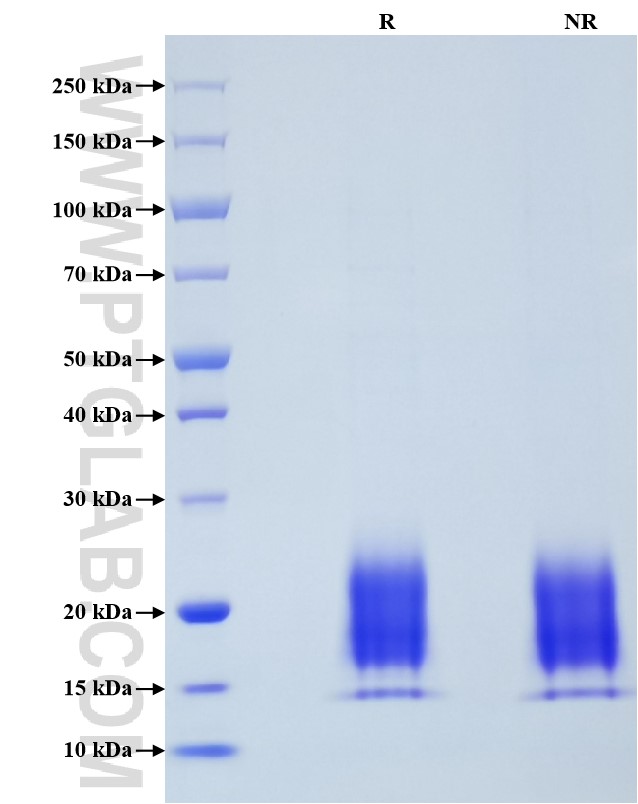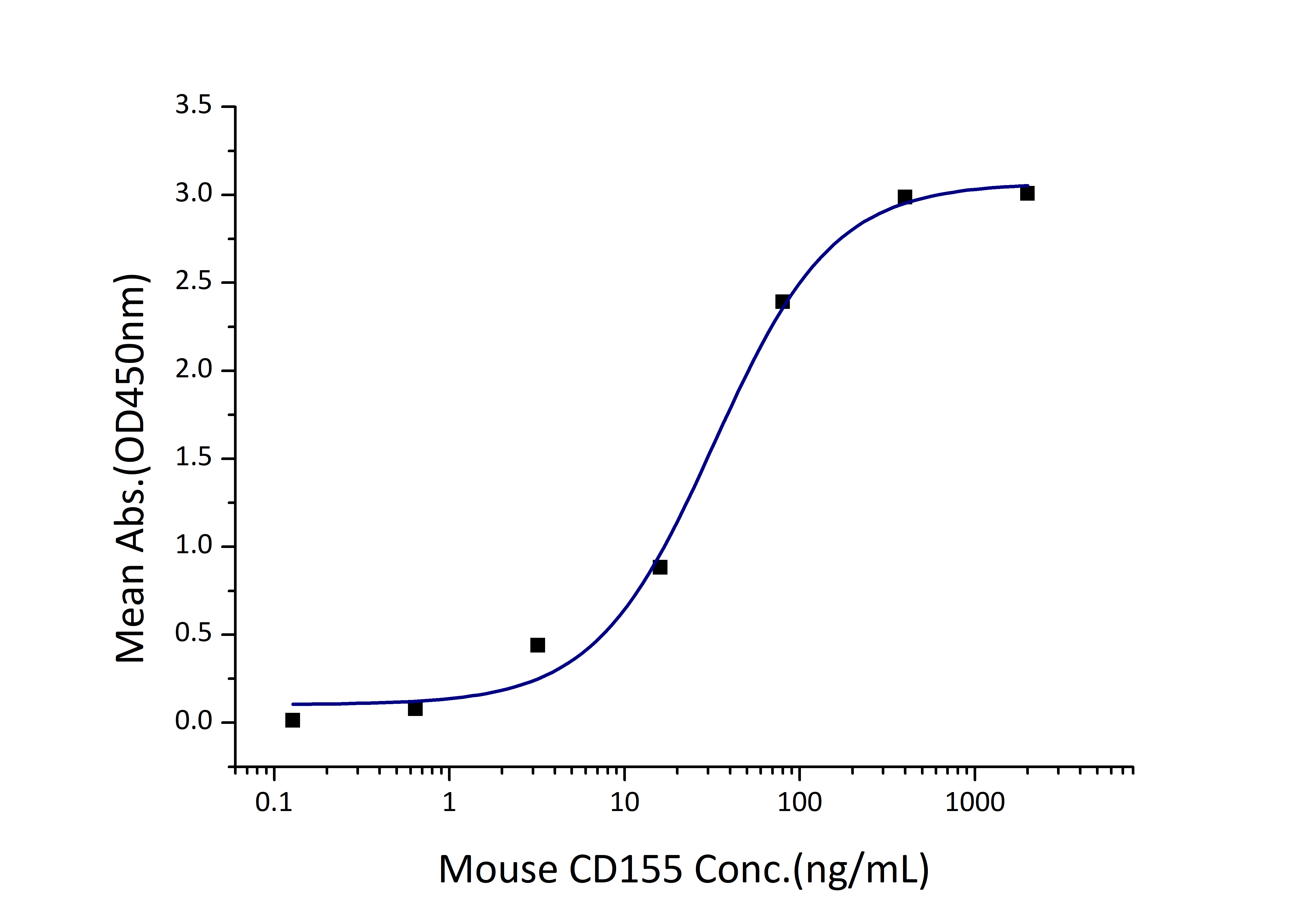Recombinant Mouse TIGIT protein (His Tag)
种属
Mouse
纯度
>95 %, SDS-PAGE
标签
His Tag
生物活性
EC50: 16-65 ng/mL
验证数据展示
产品信息
| 纯度 | >95 %, SDS-PAGE |
| 内毒素 | <0.1 EU/μg protein, LAL method |
| 生物活性 |
Immobilized Mouse TIGIT (His tag) at 1 μg/mL (100 μL/well) can bind Mouse CD155 (hFc tag) with a linear range of 16-65 ng/mL. |
| 来源 | HEK293-derived Mouse TIGIT protein Gly26-Thr143 (Accession# NP_001139797.1) with a His tag at the C-terminus. |
| 基因ID | 100043314 |
| 蛋白编号 | NP_001139797.1 |
| 预测分子量 | 13.7 kDa |
| SDS-PAGE | 15-25 kDa, reducing (R) conditions |
| 组分 | Lyophilized from 0.22 μm filtered solution in PBS, pH 7.4. Normally 5% trehalose and 5% mannitol are added as protectants before lyophilization. |
| 复溶 | Briefly centrifuge the tube before opening. Reconstitute at 0.1-0.5 mg/mL in sterile water. |
| 储存条件 |
It is recommended that the protein be aliquoted for optimal storage. Avoid repeated freeze-thaw cycles.
|
| 运输条件 | The product is shipped at ambient temperature. Upon receipt, store it immediately at the recommended temperature. |
背景信息
TIGIT (T-cell immunoreceptor with Ig and ITIM domains), also known as VSIG9 or VSTM3, is an immune receptor expressed on T cells, including Treg and memory subsets, as well as on NK cells. It contains an immunoglobulin variable domain, a transmembrane domain, and an immunoreceptor tyrosine-based inhibitory motif (ITIM). TIGIT binds to poliovirus receptor (PVR, also called CD155) with high affinity, and also to PVRL2 (CD112) with lower affinity. The interaction of TIGIT with PVR on dendritic cells increases the secretion of IL-10 and decreases the secretion of proinflammatory cytokine and suppresses T-cell activation by promoting the generation of mature immunoregulatory dendritic cells. TIGIT can inhibit NK cytotoxicity directly through its ITIM.
参考文献:
1.Xin Yu, et al. (2009). Nat Immunol. 10(1):48-57. 2.Noa Stanietsky, et al. (2009). Proc Natl Acad Sci U S A. 106(42):17858-63. 3.Joe-Marc Chauvin, et al. (2020). J Immunother Cancer. 8(2):e000957.



